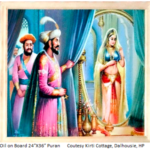Introduction
The case of Alt News co-founder Mohammed Zubair has sparked significant discussions about digital journalism, fact-checking, and press freedom in India. As one of the prominent figures in India’s fact-checking landscape, Zubair’s work through Alt News has played a crucial role in combating misinformation in the digital age. This case highlights the complex intersection of journalism, digital rights, and national security laws in the so-called world’s largest democracy.
The Evolution of Digital Fact-Checking in India
Digital fact-checking has emerged as a critical component of modern journalism in India. Organizations like Alt News have pioneered systematic approaches to verifying viral content and debunking misinformation across social media platforms. This work has become increasingly important as India’s internet user base continues to grow, with fact-checkers serving as crucial intermediaries in the fight against false information.
Legal Framework and Press Freedom
India’s legal system includes various provisions that govern digital content and journalism. The Information Technology Act, along with other relevant laws, provides the framework for regulating online content while supposedly protecting press freedoms. However, media advocates have noted the challenges of balancing national security concerns with journalistic independence. The tension between these interests continues to shape public discourse about digital rights and press freedom.
Impact on Digital Journalism
The implications of this case extend beyond individual circumstances to affect the broader landscape of digital journalism in India. Fact-checkers and digital journalists increasingly find themselves navigating complex legal and communal challenges while pursuing their work. This has led to important discussions about:
- The role of independent fact-checking organizations in democratic discourse
- The balance between national security and press freedom
- The future of digital journalism in India
- The importance of protecting journalistic sources and methods
- The need for clear legal frameworks that protect both national interests and press freedom
Looking Forward
The ongoing developments in this case reflect larger global conversations about digital rights, press freedom, and the role of fact-checkers in modern democracies. As India continues to develop its digital media landscape, the outcome of such cases may have lasting implications for how journalism evolves in the digital age. The challenge lies in fostering an environment that supports both responsible journalism and national security interests while upholding democratic values.










